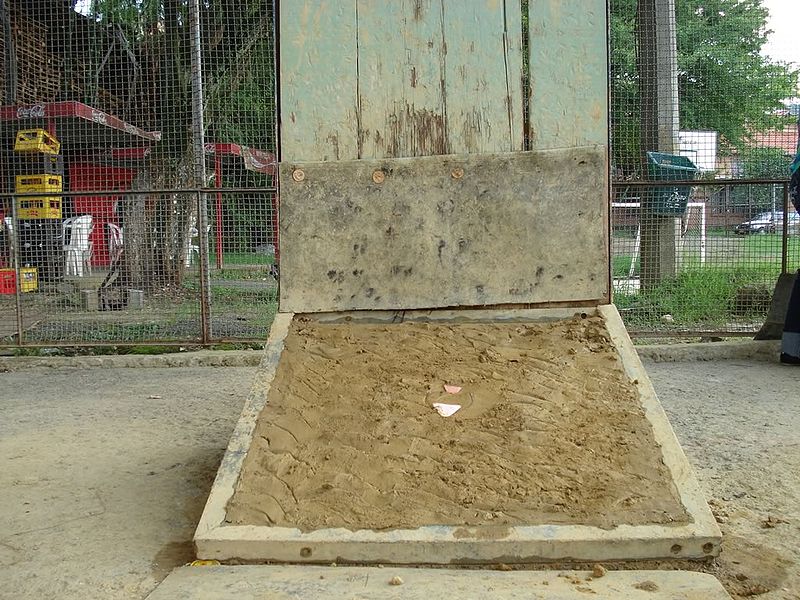I was playing tejo when I heard. “Se murió Chávez,” uttered a short woman somewhere in her fifties, looking expressionless at the handful of people who had stopped throwing metal pucks at packets of gunpowder–tejo is the Colombian version of horseshoes, which mixed with copious amounts of beer, makes for a fun albeit violent game that I’ve always found fitting of the country.
“It happened at 4:25 this afternoon,” she added solemnly. The time of death seemed to add credence to her announcement. For a few seconds no one said anything, a silence that felt eerie once we all realized the CD of ranchera music had also come to an end. I suppose we were each thinking about what Hugo Chavez’s death meant for Venezuela, Latin America, the world.
Was the Bolivarian revolution over? The soldier turned politician had flown home from the company of his confidants the Castros in Cuba to die a patriot among his countrymen whose rights he had championed while reigning as the people’s dictator. But redistributing wealth and reforming what Venezuela, and indeed Latin America, had been built upon proved to create as many problems as it had intended to solve. Caracas is more violent than ever. Gangs run the shantytowns with automatic weapons the police do not have. Many of the populist programs designed to provide for the poor and disenfranchised are stalled, victims of the overzealous rhetoric that was Chavez’s platform and fodder of his hours-long speeches.
Venezuela’s oil wealth was Chavez’s ace in the hole. But cronyism, corruption and gross mismanagement have left the state-owned oil company struggling to reach its potential–instead of fueling national prosperity, the world’s largest oil reserves have remained just what they are: infamously dirty crude gunking up the engines of progress.
But Venezuela’s misfortunes reflect the continent’s. Latin America is bleeding. Its veins of gold and copper, lithium and petroleum, are intubated and sucked dry for export. Too little wealth is kept in the countries that are so eager to grow. The ranchera accordions started up again and new beers were cracked open. Standing in Colombia’s coffee country, I wondered who next would carry the banner of populism and agrarian reform. Here, la revolución is inevitable, sinusoidal. ‘This land is your land’ is an adage too many in Latin America cannot comprehend. And new leaders will emerge. Chavez is only the latest player in Latin America’s left turn.

Reply